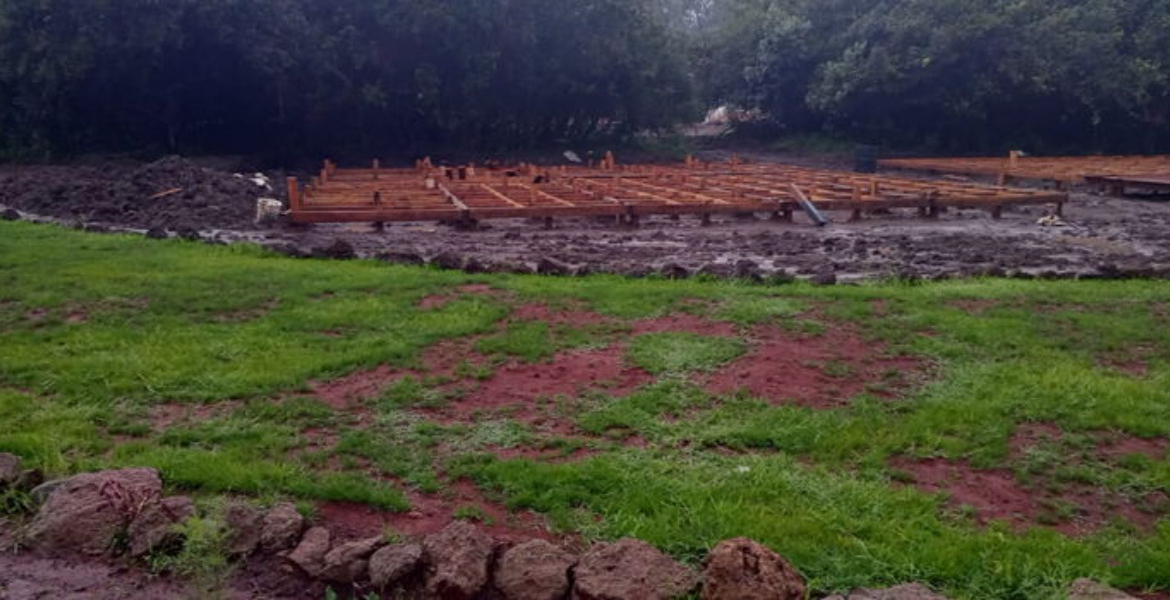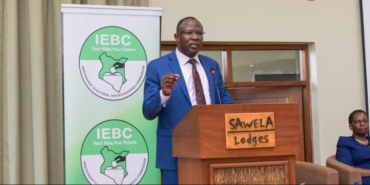Luxury Hotel Construction in Ngong Road Forest Sparks Conservation Outrage

Construction of a luxury hotel within the protected Ngong Road Forest has ignited a firestorm of controversy, raising serious concerns among environmental conservationists and prompting demands for immediate government intervention.
The Green Belt Movement (GBM), a prominent environmental advocacy group, has issued a stern call to the Kenya Forest Service (KFS) to halt the project and disclose the identity of the private developer spearheading the construction. Environmentalists warn that such activities jeopardise Nairobi's dwindling forest cover, threatening biodiversity and undermining critical ecosystem services.
A Sanctuary Under Siege
Ngong Road Forest serves as a vital ecological resource for Nairobi, providing essential environmental benefits such as air purification, carbon sequestration, and water catchment protection. The forest also serves as a cherished recreational space for city residents, offering opportunities for environmental education and outdoor activities. The construction of the luxury hotel has sparked outrage among conservation groups, who argue that allowing such projects to proceed sets a dangerous precedent for the degradation of protected lands.
Formal Demand for Accountability
In a formal demand letter addressed to KFS, GBM expresses grave concerns over the project, questioning how forest land could be allocated to private interests without public consultation. The movement emphasises that the construction, if confirmed, raises critical environmental, legal, and ethical questions.
GBM's letter asserts that the project's approval represents a failure of due diligence by the relevant authorities. The group has requested that KFS disclose the identity of the developer, details on how the land was acquired, and all environmental assessments conducted before construction commenced.
Past Controversies
The construction controversy echoes previous disputes surrounding commercial encroachment into forested areas. Earlier in the year, KFS and the National Environment Management Authority (NEMA) suspended licenses previously granted for the construction of a golf course and restaurant in the same forest. The project, spearheaded by Karura Golf Range Limited, was halted after vocal opposition from environmentalists, who argued that such developments were accelerating the destruction of urban green spaces in Nairobi.
Former Environment Cabinet Secretary Aden Duale intervened, ordering a comprehensive review of the authorisation process. The decision marked a notable victory for conservationists, reinforcing the principle that forests should remain protected from commercial ventures. However, the emergence of yet another project within Ngong Road Forest suggests that efforts to safeguard Nairobi's green spaces remain fragile.
Regulatory bodies initially approved the golf course project's construction, only to revoke them after backlash. Critics contend that this pattern of green-lighting projects highlights systemic weaknesses in environmental governance, where forest land is increasingly vulnerable to commercial exploitation.
Growing Pressure on Government Authorities
The controversy has reignited public debate over Kenya's approach to conservation, with the government frequently caught between promises of environmental protection and decisions that facilitate commercial expansion. While Kenya has positioned itself as a leader in climate policy, hosting global summits and making commitments to sustainable development, its actions on the ground often contradict these pledges.
The government recently lifted a ban on logging, raising concerns about deforestation and the long-term consequences for Kenya's ecosystems. Simultaneously, forest land continues to be allocated for development projects, further straining efforts to preserve biodiversity. Environmental advocates argue that such contradictions undermine the country's commitment to combating climate change. They stress that Nairobi's green spaces are not expendable and should not be sacrificed for short-term economic gain.
Demands for Transparency and Accountability
GBM's demands extend beyond simply halting the hotel's construction. The movement insists that KFS provide complete transparency regarding the decision-making process that led to the developer being granted access to the land. Additionally, they are seeking the Environmental Impact Assessment (EIA) report, which, if properly conducted, would outline the ecological repercussions of the development. The demand for accountability follows concerns that key stakeholders, including the general public, were excluded from discussions about the project. According to GBM, transparency in such matters is crucial to ensuring that conservation policies are upheld and that forest reserves remain protected from encroachment.
"The integrity of our forests must not be compromised by commercial interests," GBM stated in a post on X. "The Kenya Forest Service must explain how this development was approved, whether environmental regulations were followed, and whether proper consultations were conducted."
Nairobi has already experienced significant losses in green space due to urban expansion, leading to increased pollution, reduced biodiversity, and heightened vulnerability to climate change. With global conversations centred on sustainability and environmental resilience, Kenya's handling of forest conservation will remain under scrutiny. Environmentalists argue that forests like Ngong Road are irreplaceable natural assets, essential not just for wildlife but also for the well-being of Nairobi's residents.
Activists are calling for stronger enforcement of conservation laws, emphasising that forests should be safeguarded against commercial interests that threaten their ecological integrity. They argue that if the government fails to act decisively in this instance, it could encourage similar developments in other protected areas.








Add new comment